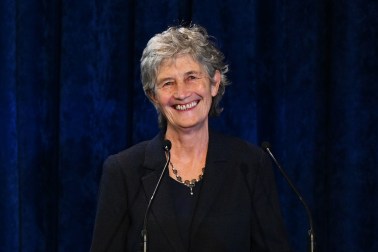The New York Times’ Janet Maslin reviews Frank Brady’s review of Chess playing wild child Bobby Fischer.
‘It’s no exaggeration to call Bobby Fischer both one of the most admired and one of the most reviled figures in American history. The admiration is prompted by his precocious rise to the pinnacle of the chess-playing world and his galvanizing 1972 cold-war-era triumph over Boris Spassky, the Soviet champion. The vilification stems from the monstrousness he exhibited in later years. On Sept. 11, 2001, he told a radio interviewer, “Yes, well, this is all wonderful news,” and, “It’s time to finish off the U.S. once and for all.” Thanks to the Internet, those comments will live forever. A man of such extremes is no easy subject for biographical study. For one thing, the many Fischer outrages and eccentricities could too easily be sensationalized. For another, Fischer’s story cannot be told without detailed attention to chess. But Frank Brady, who knew Fischer for many years and is “internationally recognized,” according to the jacket copy of his new book, “Endgame,” as “the person most knowledgeable about the life and career of Bobby Fischer,” seems unusually well qualified to capture his many facets and contradictions. He has the wisdom to recognize that genius would not be genius if it could be easily explained.’
Actor, writer and political fixer, Rob Lowe, will be speaking to the Hay Literary Festival about his autobiography Stories I Only Tell My Friends.
The Independent talks to Simon Armitage, who is up for the T.S. Eliot Prize tonight.
‘Looking back over Britain’s recent relative boom years he believes it is very easy for some to feel short-changed. “There have been layers of comfort over the last decade and a half,” he says. “It now feels a little bit like we have been pouring champagne into the glass and it has looked full but it has been full of bubbles. Now they have all popped and there is only half an inch in the bottom of the glass. It’s not something you’d want but it might provoke some interesting reactions both socially and artistically.” “I don’t think that any political persuasion has its hold over the poetry world. What you tend to find is that poets are humane. They put a very high value on human life and the individual. That is fairly common amongst us and there is an idea of fairness.”‘
The Times’ Erica Wagner celebrates (£) the return of ‘Anon’.
‘Anon’s been back in the news. Google “anon-ymous” and you’ll probably come upon a couple of YouTube productions posted under that name. There’s an MTV-style video of folks cavorting in Joker-style masks to foment revolution; there’s a Big Brother-style video featuring a headless chap in a suit and a computerised woman’s voice (think of a soprano Stephen Hawking) announcing: “We support the free flow of information. Anonymous is actively campaigning for this goal in all forms.” And that’s what Anon has always been about. Who, what, is Anonymous? Most recently it’s a name adopted by the aforementioned group of internet hackers and activists. But as far as literature is concerned Anon is the “author” of most of the great ballads that have been handed down to us over time. Tam Lin, Lord Bateman, Thomas the Rhymer: it’s a very long list. What’s certain is that these ballads were changed and adapted — and still are — each time they were sung; the Anon of the ballads is many voices, distilled into one. But much of our great poetry, too, is by Anon, from The Epic of Gilgamesh to Beowulf; even works by “authors” whose names we know. As the poet — and trans-lator of the great anonymous poem Sir Gawain and the Green Knight — Simon Armitage notes, there’s a human desire to project an individual identity where there is, essentially, none: “People write biographies of Homer; we don’t even know, finally, whether he existed.” From present-day politics to the history of literature, the voice of Anon rings down the ages. So I’ll be going In Search of Anon, the first event of Commonplace, a remarkable sequence of discussions, concerts and workshops at Kings Place in London next month.’





Comments